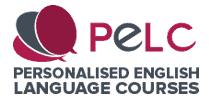3 Unique Tips to really become fluent in English
The question on most English learners’ lips is - what are the most trusted ways to become fluent in English?
If you think that doing grammar gap fill exercises, listening to artificial dialogues in coursebooks and watching films will help you to become fluent in English, think again.
It’s time to break away from the same old traditional methods and develop some other language learning strategies.
I’d now like to analyse some of the tactics which have helped my students to become fluent in English. Tips 1 and 2 below also enabled me to communicate in a foreign language in super quick time:
1: Stop focusing on single words and begin to focus on collocations and phrasal verbs
One of the biggest mistakes that language learners make is they place too much emphasis on learning single-word units. Single-word units might help to fill in gaps in speech. However, they do not help very much when it comes to promoting overall fluency.
SOLUTION - focus on collocations, fixed phrases and phrasal verbs.
English is not the grammar-heavy language you might think it is. Indeed, so many of the sentences that are uttered in conversation can be broken into smaller groups of words. These groups of words are called lexical chunks.
Consider this mini monologue which contains multiple lexical chunks:
* I / made a big mistake / last year / when I /gave a few of my acquaintances permission / to / make changes / to my website. / Little did I know / that they didn’t / have a clue / about / website development /. It / took me a long time / to sort out / the / mess they'd made / *
Using slashes (/), I've separated the lexical chunks and fixed phrases which are non-grammatical in nature. Therefore, we have:
- make a mistake
- last year
- give someone permission
- make a change
- little did I know
- have a clue
- website development
- take a long time
- sort out
- make a mess
What is the moral of the story?
Well, shift your focus from single-word units to collocations and lexical chunks to help you become fluent in English.
2: RECORD PERSONALISED SENTENCES CONTAINING TARGET WORDS AND COLLOCATIONS IN A WORD-PHRASE TABLE
So, you’re now aware that you need to focus on lexical chunks. The next step is to create a Word-Phrase Table on a google doc. This will enable you to store all of the words and collocations you come across. Moreover, it’s great practice to write true, personalised sentences about you and your personal circumstances which contain target words and collocations.
Many language learners are too untidy and inconsistent when it comes to recording vocabulary and collocations.
Scribbling words and phrases into a notebook won’t get you anywhere!
You need to be organised, pay attention to detail and be willing to get to know new words and phrases LIKE THE BACK OF YOUR HAND!
In order for me to describe the key features of the PELC Word-Phrase Table, I'll put myself in the shoes of a Russian upper-intermediate student who's determined to become a more accomplished speaker of English. Let’s imagine that my interests are travel, computers and Business English. I have recently come across the following language items in a text related to travelling by plane:
Immerse oneself in a new culture
board a plane
get off a plane
scream
I would create deep associations with these language items by:
1. Translating the target language items into Russian:
| 1. RUSSIAN … | immerse myself in a new culture |
| 2. RUSSIAN … | board a plane |
| 3. RUSSIAN … | get off a plane |
| 4. RUSSIAN … | scream |
2. Becoming thoroughly acquainted with the new words and phrases by adding related collocations after a dash (-), synonyms, antonyms and word forms etc to the table:
opp. opposite
syn. synonym
n. noun
| 1. RUSSIAN … | immerse myself in a new culture - cultural immersion |
| 2. RUSSIAN … | board a plane n. boarding opp. disembark - boarding pass |
| 3. RUSSIAN … | get off a plane syn. disembark (a plane) opp. get on a plane |
| 4. RUSSIAN … | scream - scream loudly - scream your head off |
3. Adding TRUE, PERSONALISED SENTENCES which contain target words and collocations, or any related synonyms, collocations and word forms. It's a very good idea to hire a native speaker of English to check and create audio files of your sentences:
| 1. RUSSIAN… | immerse myself in a new culture – cultural immersion * It’s never been an issue for me to immerse myself in a new culture when I travel to a new country * I know quite a few teachers of English who travel the world to teach, yet they aren’t really interested in cultural immersion |
| 2. RUSSIAN… | board a plane n. boarding opp. disembark – boarding pass * If I carry a small suitcase or rucksack that I know I can put under my seat, I never rush to board a plane first * When it comes to putting a large cabin bag in an overhead locker, space can sometimes be at a premium. Therefore, I usually try to be among the first to board if I have a large bag |
| 3. RUSSIAN… | get off a plane syn. disembark (a plane) opp. get on a plane * Personally, I can’t understand people who are in such a hurry to disembark a plane, especially when they have to wait for all the passengers to get off the plane and onto a bus in order to be taken to the terminal |
| 4. RUSSIAN… | scream – scream loudly – scream your head off * I’m usually one of the unlucky passengers who as to sit close to a child who screams its head off from takeoff to landing * I’m used to sitting next to screaming children on airplanes |
4. Making use of visualisation to support the language acquisition process. The use of different fonts, bold font, italics and colour enable key words and phrases to stand out. Furthermore, such aspects of visualisation can also help to illuminate grammatical structures commonly used in spoken English. This is the case with used to + ing in 4. Used to has lexical qualities. However, I’ve also highlighted that “used to” is followed by -ing as opposed to a to + infinitive structure.
| 4. RUSSIAN … | scream – scream loudly – scream your head off * I’m usually one of the unlucky passengers who has to sit close to a child who screams its head off from takeoff to landing * I’m used to sitting next to screaming children on airplanes |
| 3. RUSSIAN … | get off a plane syn. disembark (a plane) opp. get on a plane * Personally, I can’t understand people who are in such a hurry to disembark a plane, especially when you have to wait for all the passengers to get off the plane and onto a bus in order to be taken to the terminal |
| 2. RUSSIAN … | board a plane n. boarding opp. disembark – boarding pass * If I carry a small suitcase or rucksack that I know I can put under my seat, I never rush to board a plane first * When it comes to putting a large cabin bag in an overhead locker, space can sometimes be at a premium. Therefore, I usually try to be among the first to board if I have a large bag. |
| 1. RUSSIAN … | immerse yourself in a new culture – cultural immersion * It’s never been an issue for me to immerse myself in a new culture when I travel to a new country * I know quite a few teachers of English who travel the world to teach, yet they aren’t really interested in cultural immersion |
5. Now there is a chance to really exploit the used to + ing structure by adding another row into the table and creating further personalised sentences:
| 5. RUSSIAN … | used to + ing * I’m used to replying to emails in the morning and evening * I’m used to walking everywhere and only use my car when it’s absolutely necessary |
All in all, developing a Word-Phrase Table will help you to become engaged with words and collocations at a much deeper level far beyond simple translation from English into your first language.
Another vital point is that it's crucial to develop a consistent schedule when it comes to revising your table. For instance, you can revise every day for the first few months. Thereafter, you can move to every second then third day as your memorisation skills develop.
As previously mentioned, the icing on the cake would be for you to employ a native speaker to create audio files of all your personalised sentences. To become fluent in English, you really must go the extra mile!
3: View schwa as one of the keys to spoken fluency and not a boring vowel sound
The most common vowel sound is the /uh/ sound - known as the schwa.
Most English language coursebooks and teachers inform students that schwa is just a common vowel sound. According to some estimates, one in three vowel sounds that a native speaker utters is a schwa. Students might also learn about the position of your mouth, lips, jaw and tongue when it comes to producing a schwa sound.
Unfortunately, so few teachers and books alert students of the fact that schwa helps to speed up speech, thus creating that all-important perception of fluency.
That’s right - the schwa sound really CAN help you become fluent in English!
Here are two ways in which native English speakers use schwa to speed things up:
1. REDUCING THE VOWEL SOUND IN FUNCTION WORDS TO SCHWA WHEN USING CONNECTED SPEECH
Content words - that is nouns, adverbs, verbs and adjectives - help us to convey messages and express the most important information. However, it is the words with a grammatical function, called function words, which stitch the content words together.
Typical function words include prepositions (for, to), conjunctions (as, and), auxiliary verbs (do, has), articles (a, the) and pronouns (you, him). In everyday conversation, native speakers use connected speech and, therefore, routinely reduce function words to schwa.
This sentence contains many function words with vowels that can be reduced to schwa:
I don’t want to be a doctor any more as the pay is laughable
2. THE ‘LINKING R’ - LINKING SCHWAS WITH /R/
When a word ends in a schwa sound and the letter ‘r’, and the following word begins with a vowel sound, the majority of British people join the words with /r/ thus:
MOTHER_AND FATHER
FURTHER_AWAY
THE OTHER_END
This phenomenon sometimes occurs where there is no ‘r’ at the end of a word. However, it is not considered to be good English:
BANANA_AND PEAR
MARIA_EDWARDS.
Check out my Youtube vid for further confirmation about the power of schwa.
CONCLUsion
There must be thousands of tips out there to help you become fluent in English. Admittedly, the tips I have provided you with in this post do require patience and labour. However, the results will be well worth the effort.



